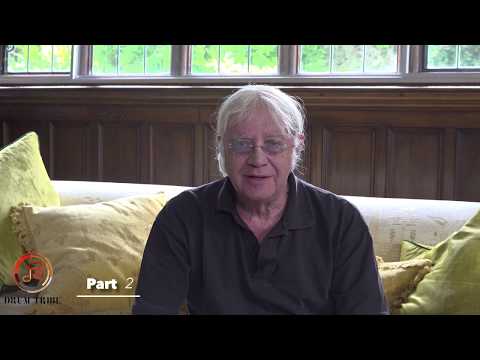
If you found yourself even slightly relieved to turn over to Gogglebox not to find Giles and Mary weeping quietly into union flag handkerchiefs while watching non-stop rolling coverage of Nicholas Witchell trying to dredge up entire days’ worth of obsequious things to say about Prince Phillip, you might have realised that our traditional national identity is crumbling around us.
Any sense of imperialist superiority is disintegrating with every export barred or expat shipped home. Start a conversation with anyone with a Union Jack in their Twitter handle and you might be surprised at how little grace, discernment and gallantry ensues. Divided, exploited and at each other’s throats, we’ve so lost sight of who we are as a nation that we’re in danger of winning an international footballing semi-final on penalties.
Which is why we should be protecting our prime cultural treasures at all costs. Exhibit one: The Smiths. Misery, isolation, melodic moaning, idolising American film stars and mainlining Coronation Street – could there be a more quintessentially British band? Yet over the years their legacy has been tainted by Morrissey’s support for far-right politics (among other pronouncements) and one of our greatest musical achievements has been at risk of being tipped into the ‘consequence culture’ canal alongside The League Of Gentlemen and Robert Webb.
I’ve written before about the inevitability of losing your empathy and connection with artists why fly to the crueller ideological fringes, but Morrissey alone was not The Smiths, nor the thoughts of the striving young poet with hearing issues the same as the moneyed middle-aged malcontent. So it’s with some relief that, like Babe snatched from the mincer’s jaws (to use a Moz-friendly metaphor), we’re being given a couple of excuses to rehabilitate The Smiths.
First came Shoplifters Of The World, a film based on the true story of 18-year-old Smiths fan James Kiss planning to hold up a Denver radio station at gunpoint and force them to play only Smiths songs. In real life the Moziac in question didn’t go through with it, but in the film record store clerk Dean does, bonding over music with his DJ hostage Full Metal Mickey while the Denver drive-time audience attempts to get its head around ‘Death Of A Disco Dancer’. Meanwhile, checkout dreamer and Smiths fanatic Cleo sets out on a coming-of-age all-nighter determined to use the opportunity to wake up Denver’s party jocks to the delights of ‘The Headmaster Ritual’ and ‘I Know It’s Over’.
Reviews have been mixed: “I laughed, I cried, I ate my own head,” Morrissey said; “Exactly the movie that Morrissey deserves,” claimed Mark Kermode. But whether the plot of Alan Partridge: Alpha Papa still works when smothered in ‘80s outsider melancholy is kind of beside the point. Laced with ‘80s footage and interviews, the film is basically a tribute and love letter to a band whose emotional connections and sonic impact span generations – there’s little arguing with Morrissey’s post-screening assertion that “The Smiths’ past still sounds like today’s frustrations and tomorrow’s liberations”.
By making the doppler guitars of ‘How Soon Is Now?’ a cinematic event as striking as Emma Watson car-surfing to Robert Fripp’s ‘”Heroes”’ riff or skyscrapers falling to Pixies’ ‘Where Is My Mind?’, the film represents widespread western culture acknowledging and celebrating the cornerstone of British alternative culture. It’s like the whole UK indie universe gets to see its name in lights.
Then, in an accolade far more prestigious than being given an entire wing of any Hall Of Fame, The Smiths have bagged themselves an entire episode of The Simpsons without even having to turn up and sing happy birthday to Lisa. In the most recent episode, Lisa develops an imaginary friend called Quilloughby with a distinctive quiff, with whom she strikes forlorn poses outside Springfield Lads Club and sings songs called ‘Everyone Is Horrid Except Me (And Possibly You)’.
With music by Flight Of The Conchords’ Bret McKenzie and voiced by Benedict Cumberbatch, it’s the sort of referencing that cements legends, as the world’s mainstream 10-year-olds scramble to work out why Homer is reclining in moody green tint beneath the words ‘Panic On The Streets Of Springfield’, times decades of repeats. How big a deal is it? U2 had to phone up and beg to be on The Simpsons.
It’s certainly not Witchell-esque in its fawning, however, and Morrissey isn’t happy about his portrayal, which does frustratingly equate the Morrissey of 2021 with The Smiths of 1985. But such high-profile homages to a band long under-appreciated beyond these shores – by the time of their split they’d clambered and clawed their way to just Number 55 in the US charts with ‘Strangeways, Here We Come’ – cut far deeper than any barbs in the script. They don’t just lift The Smiths into the revered echelons of your Beatles, Rolling Stones, Whos and U2s; they remind us how special a band we’ve come to define by their differences really were as a unit.
For years now, our concept of ‘The Smiths’ has been Morrissey’s reactionary politics versus Johnny Marr’s nonchalant cool; the music itself – only played sparingly at either’s shows – virtually forgotten amid the frothing and frictions, all but lost behind a fog of litigation and controversy. Morrissey’s worst outbursts aren’t to be dismissed or excused, but neither should his recent opinions tarnish The Smiths as a whole over three decades on. Just as Father Ted remains objectively hilarious no matter what your pronouns, ‘Please, Please, Please, Let Me Get What I Want’ stills brings tears to the eye the breadth of the political spectrum.
Some bands so utterly encapsulate the comfort and fellowship of music that they deserve to transcend their eras and remain relevant. And here’s our chance to rescue The Smiths from the pyre, unshackle them from the conversation around them and let their music settle back into its rightful place, just below the heart of the human condition, tugging it gently downwards. A chance to recognise and nurture a light that doesn’t deserve to go out.
The post Whatever Morrissey says, the new episode of ‘The Simpsons’ could rehabilitate The Smiths’ image appeared first on NME.









